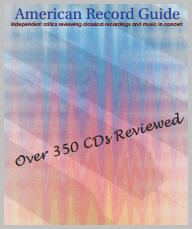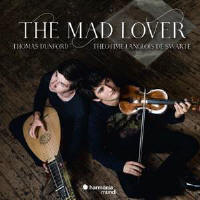Texte paru dans: / Appeared in: |
|||||||
|
Outil de traduction ~ (Très approximatif) |
|||||||
|
Reviewer: Charles
Brewer
The title for this anthology
was inspired by two grounds, based on different ostinatos, that John Eccles
wrote as incidental music for a play about a melancholy man. In addition to
Eccles, this collection of sonatas, suites, grounds, and divisions includes
a single prelude for unaccompa-nied violin by Henry Purcell, the ‘Sonata
Sesta’ by Daniel Purcell, two sonatas by Henry Eccles, and a number of
selections by both the elder Nicola Matteis (c.1650-c.1714), an Italian
immigrant to England, and his son, also named Nicola (late 1670s-1737). Many
of these selections are also ostinato variations, such as the elder
Matteis’s ‘Diverse bizzarie sopra la vecchia saraband o pur Ciaccona’
(Various whimsies on the old saraband or, if you like, Ciaccona) or Henry
Eccles’s ‘New Division on the ground bass of John come and kiss me’.The
sonatas by Daniel Purcell and Henry Eccles are very much in the style of
Arcangelo Corelli’s Italian contemporaries, while the elder Matteis’s suite
consists of dances and character pieces (such as the ‘Aria Burlesca’ and the
‘Giga al Genio Turchesco’). The two unaccompanied violin fantasias by the
young Matteis are found only in a German manuscript, though on this new
recording the second movement of the unaccompanied Fantasia in C minor by
the younger Matteis is missing.
De Swarte’s sensitive
interpretations are imaginatively supported by Thomas Dunford’s lute
continuo. While I have not heard the release by Theatrum Affectuum (Aeolus
10226, 2015), both the earlier recordings of music by Matteis and his
contemporaries (July/Aug 1995 & July/Aug 1998) as well other more recent
recordings (Amandine Beyer, Alpha 497, 2009, and Alice Julien-Laferriere
(Jan/Feb 2021) are very good, but none match the sensitivity of De Swarte. I
hope he will soon accept the challenge to perform music by the 17th Century
Central-European violinists, Schmelzer, Biber, and their contemporaries. | |||||||
|
|||||||
|
|
|
||||||
|
Cliquez l'un ou l'autre
bouton pour découvrir bien d'autres critiques de CD |
|||||||




